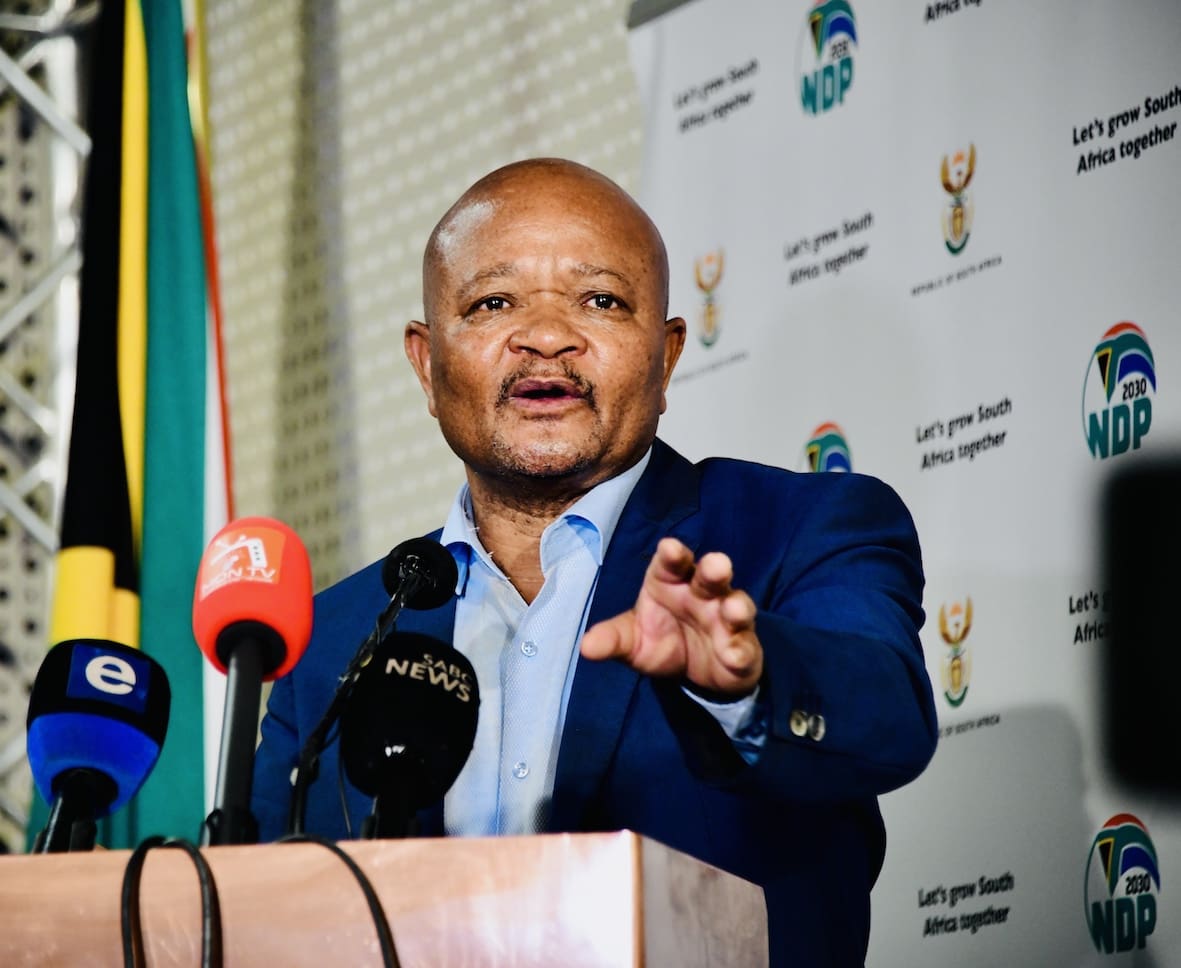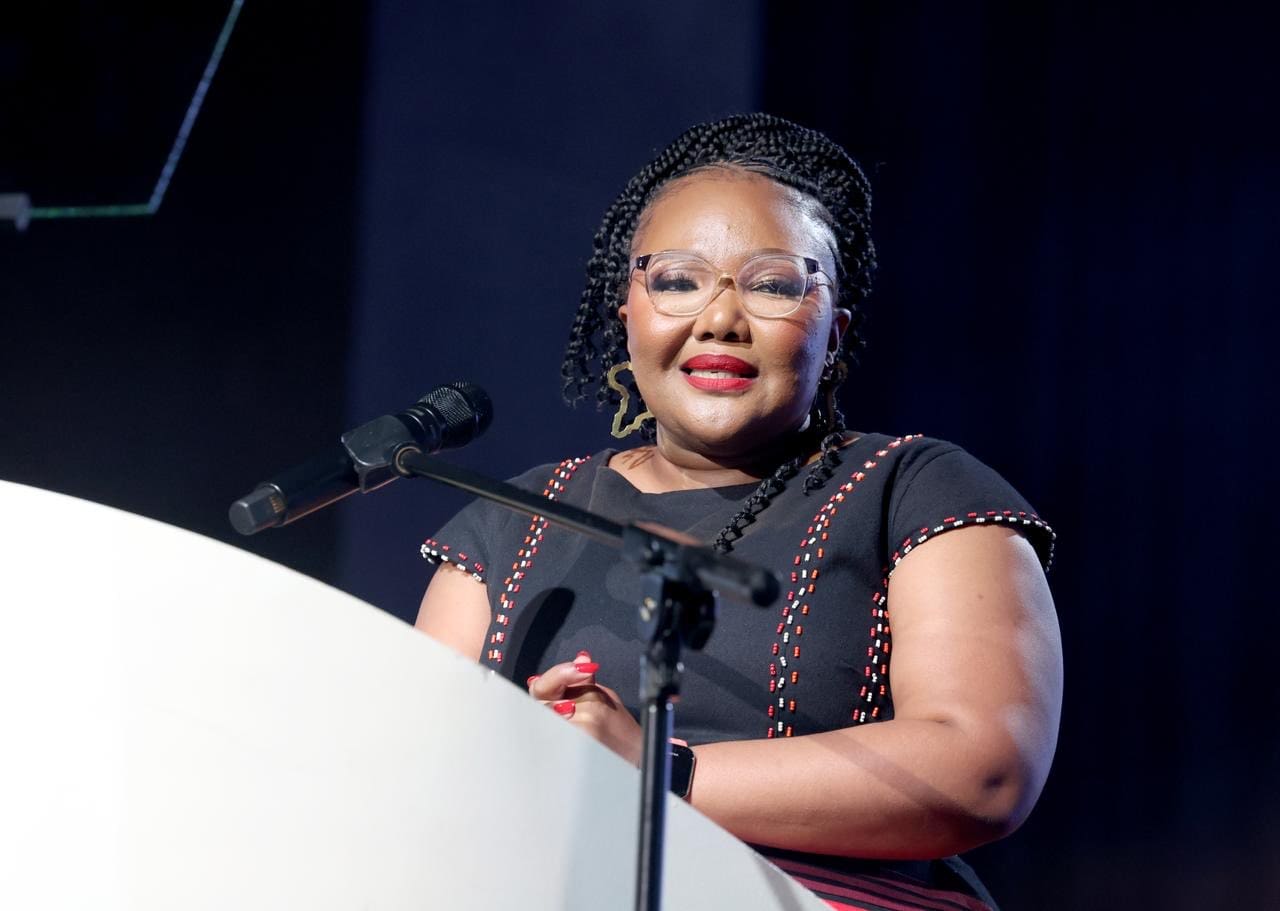South Africa is once again in the throes of a high-stakes inquiry — this time into claims that crime syndicates and politicians have hijacked the very system meant to keep us safe.
Just less than two weeks ago, on 17 September, the Madlanga Commission kicked off in Pretoria. Chaired by Acting Deputy Chief Justice Mbuyiseli Madlanga, it has become a real-life crime thriller exposing troubling cracks in the country’s policing and justice systems. From syndicate infiltration to political meddling, the testimonies have been explosive.
So what’s really going on? Here’s a breakdown of what the commission is, why it matters, and where it could be heading.

What is the Madlanga Commission, and why was it launched?
The Judicial Commission of Inquiry into Criminality, Political Interference, and Corruption in the Criminal Justice System — better known as the Madlanga Commission — was established in July 2025 by President Cyril Ramaphosa.
Its mandate: to investigate claims that criminal syndicates, political actors, and corrupt officials have wormed their way into policing, intelligence, prosecution, and even parts of the judiciary.
The commission comes against the backdrop of a justice crisis. For years, South Africans have watched cases stall and prosecutions collapse, often amid whispers of “dirty cops” and political protection. The inquiry is meant to drag those whispers into the open.
What sparked the commission, and how deep do the allegations run?
It all kicked off on 6 July, when KwaZulu-Natal (KZN) Police Commissioner Lieutenant General Nhlanhla Mkhwanazi held a bombshell press briefing. He accused a sophisticated criminal syndicate—linked to international drug cartels—of infiltrating police, prosecutors, intelligence services, politicians, and even the judiciary.
We’re talking collusion, leaks of classified info, and interference in investigations, including political killings. These aren’t wild theories; Mkhwanazi backed them with WhatsApp chats and financial records.
The depth? It allegedly involves high-ranking officials protecting syndicates, eroding the rule of law and national security. Ramaphosa responded by gazetting the commission’s terms, focusing on verifying these claims.
He further claimed that then-Police Minister Senzo Mchunu improperly ordered the disbanding of the Political Killing Task Team (PKTT) — a unit probing political assassinations in KZN—raising suspicions that powerful figures were being shielded. Mkhwanazi’s explosive allegations, which included evidence of Mchunu’s alleged ties to a corrupt businessman, led to the minister’s immediate suspension by President Ramaphosa on 13 July, with Law Professor Firoz Cachalia appointed as acting Police Minister.
In short: this isn’t about a few “bad apples”. The allegations suggest a systemic rot where investigations can be manipulated, cases buried, and criminal networks operate with protection from the very institutions meant to stop them.
What’s the Political Killings Task Team (PKTT)?
The PKTT is a specialised SAPS unit, formed in 2018 by a presidentially appointed Inter-Ministerial Committee, to tackle political assassinations in KwaZulu-Natal. Led by Lieutenant General Dumisani Khumalo, it made breakthroughs despite being scaled back under political pressure, with some alleging its work was deliberately undermined to protect connected figures.
Why is the commission’s leadership in turmoil?
The inquiry barely got underway before hitting turbulence. Advocate Terry Motau, the original evidence leader, asked to step down less than two weeks into public hearings.
His departure — amid unconfirmed reports of possible threats or security concerns — raised eyebrows. Some saw it as a sign of pressure or interference. Others suggested it was logistical or personal. Either way, the timing was awkward.
On Sunday, Motau was replaced by Advocate Matthew Chaskalson, a respected legal mind, but the shake-up feeds public fears that the commission could be destabilised before it uncovers the truth.
Who is testifying, and what bombshells have emerged so far?
Here’s where the plot thickens. The commission kicked off its hearings on 17 September in Pretoria, and it’s been a rollercoaster of shocking testimonies exposing power struggles and systemic rot in the justice system.
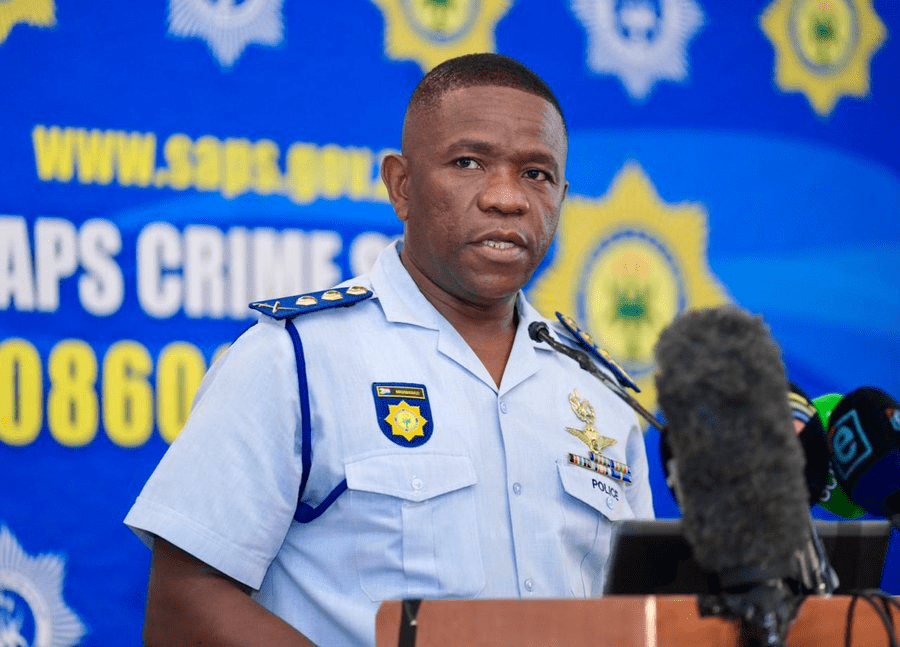
Lt-General Nhlanhla Mkhwanazi (KwaZulu-Natal Police Commissioner)
First to testify was KZN’s Nhlanhla Mkhwanazi, over three days. He laid bare his dossier on syndicate infiltration, alleging plots to derail probes into political killings and drug networks. He dropped names, claiming intelligence leaks to criminals, fake “corruption-busters” sabotaging real investigations, and top officials protecting cartels. Mkhwanazi pointed to former Police Minister Senzo Mchunu, alleging ties to dodgy figures and interference in operations, supported by evidence like WhatsApp chats showing undue influence.
- As the whistle-blower who sparked the inquiry, Mkhwanazi was the commission’s first witness.
- He testified that the PKTT’s work was systematically undermined by interference from political and police leadership.
- He alleged Minister Senzo Mchunu instructed the disbanding of the PKTT, crippling one of the only units making headway on political killings.
- He described manipulation of dockets and deliberate suppression of investigations.
His testimony set the tone: that entire policing structures may have been hijacked to serve criminal or political interests.
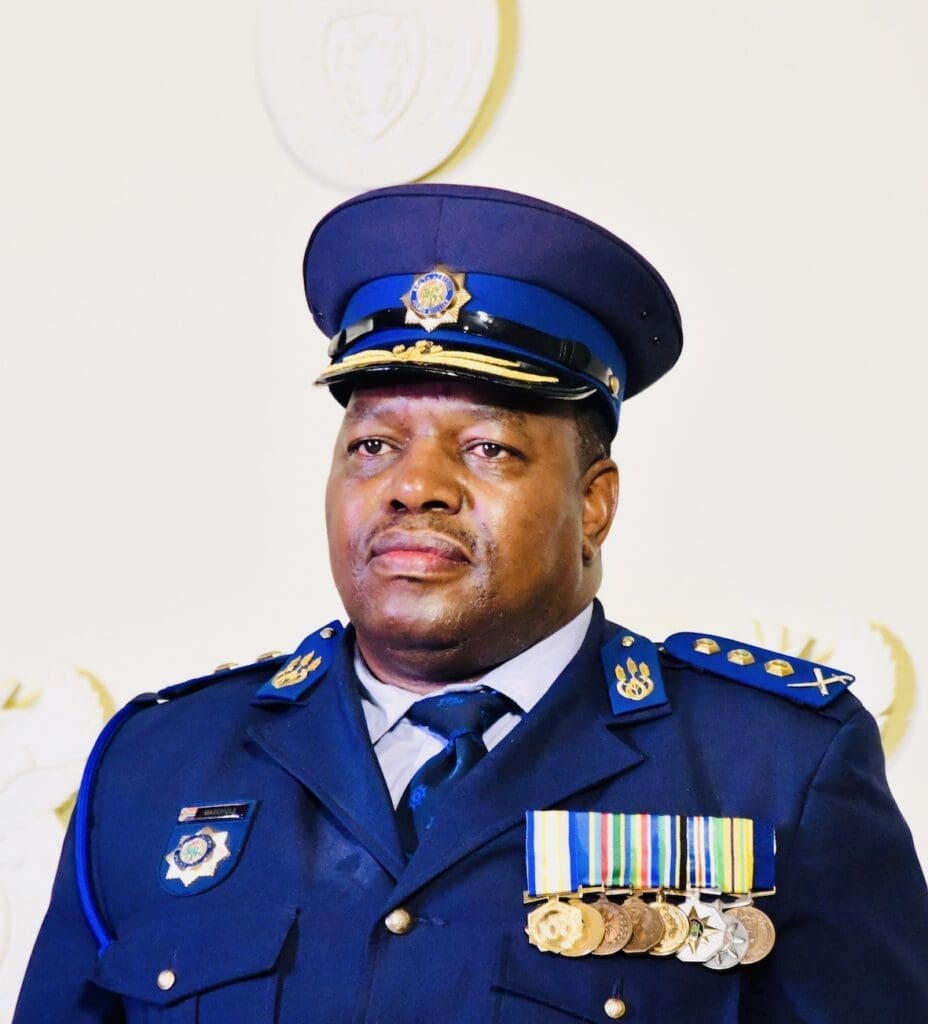
General Fannie Masemola (National Police Commissioner)
Next up, National Police Commissioner Fannie Masemola faced two days of intense grilling starting 22 September.
Justice Madlanga pressed him on why he followed Mchunu’s “unlawful” order to disband the PKTT, a unit investigating KZN assassinations. Masemola admitted it breached the Constitution’s guarantee of police independence but said he complied anyway, calling it a “total encroachment.”
He revealed tensions with Mchunu, including claims the minister denied post-1994 political killings (despite evidence) and targeted units like Gauteng Counter-Intelligence.
Masemola also linked the recent arrest of Crime Intelligence head Dumisani Khumalo (on fraud charges) to efforts to undermine anti-corruption work, suggesting retaliation. His contradictory remarks, like saying “life goes on” despite interference, left the commission puzzled.
Under tough questioning from Justice Madlanga, he revealed:
- He first learnt of the PKTT’s disbandment via WhatsApp while on leave — not through formal police channels.
- He implied that those drafting the disbandment letter misled the minister about internal structures.
- He linked Deputy Commissioner Shadrack Sibiya to underworld figures, suggesting senior leadership may have been compromised.
- Crucially, he warned that dismantling the PKTT looked like deliberate sabotage of a functional investigative unit.
Observers noted that his evidence corroborated, at least in part, Mkhwanazi’s claims — making the case against political interference harder to dismiss.
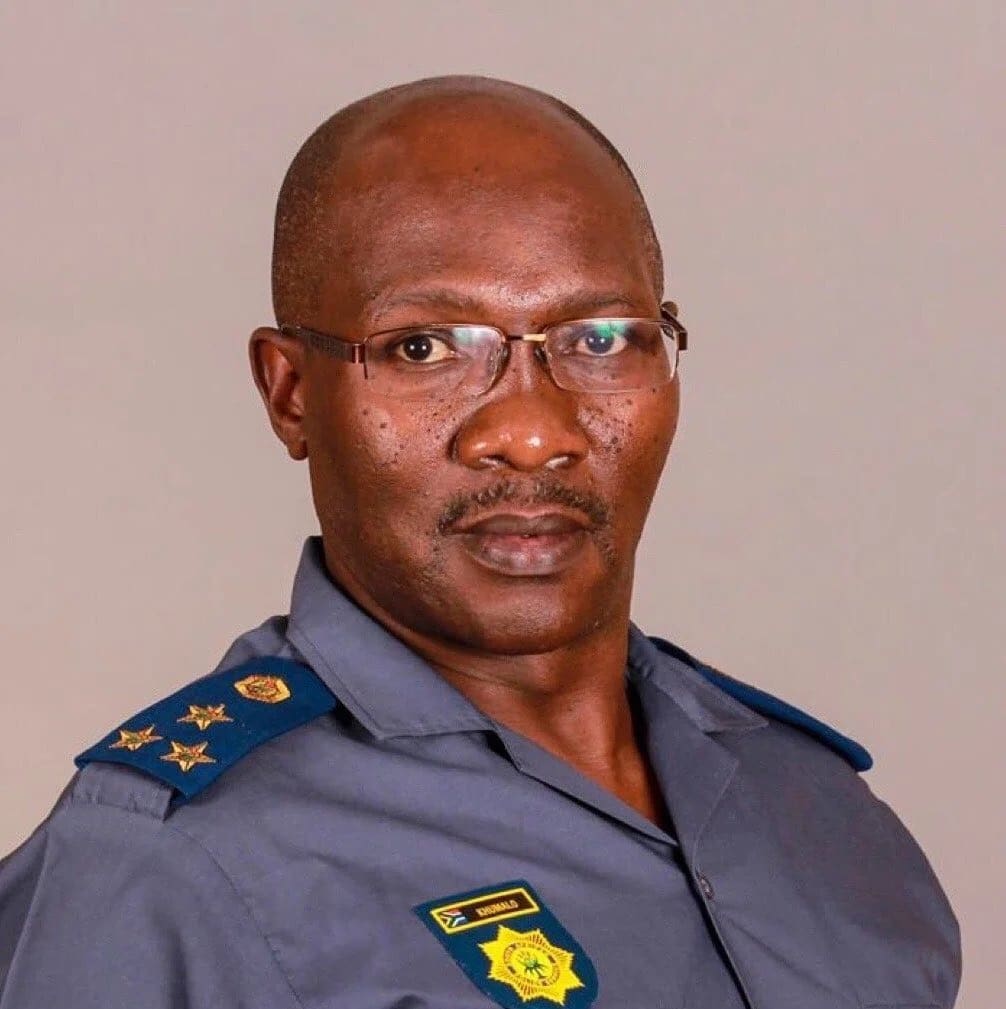
Lt-General Dumisani Khumalo (Head of Crime Intelligence)
All eyes are now on Dumisani Khumalo, the head of Crime Intelligence for SAPS, who began his testimony at 9:30 this morning. Fresh off his June arrest on fraud and corruption charges, related to the alleged irregular appointment of Brigadier Dineo Mokwele and misuse of vetting funds, Khumalo remains suspended. His lawyers say he will address these charges in the future.
His testimony, expected to span several days, dropped a curveball: not all his evidence would see the light of day. “Not all evidence will be made public,” Khumalo stated, adding that he’d apply to share sensitive bits in camera—behind closed doors—to protect ongoing operations and sources.
Khumalo’s account painted a picture of a justice system under siege, echoing the explosive claims from earlier witnesses.
- He revealed that he, Mkhwanazi, and Masemola were forced out of acting leadership roles in 2012 while trying to reform Crime Intelligence, suggesting a plot to protect corrupt interests.
- Khumalo vowed to expose syndicate infiltration by drug cartels into police, judiciary, and business, making reference to ongoing Gauteng counterintelligence operations probing these networks.
- He clarified that the PKTT, which he’s led since 2018, was created by a presidential committee, not ministers.
- Facing fraud charges himself, he implied his June arrest was retaliation for challenging the status quo, echoing 2012’s purges.
These testimonies paint a justice system riddled with leaks, unlawful orders, and cartel influence, echoing Zondo’s state capture findings. More witnesses, like prosecutors, are still to come.
Should President Ramaphosa testify, and what happens if Parliament forces his hand?
Parliament’s ad hoc committee is debating whether to call Ramaphosa to testify, especially after Masemola’s claims hinted at presidential involvement.
The committee’s draft witness list names him alongside 12 others, including former ministers. If summoned, he’d likely clarify his role in launching the commission and handling allegations, much like his Zondo testimony.
It could boost transparency, but risks politicising the probe. Refusal might trigger legal fights or public outrage.
So what does the Madlanga Commission mean for everyday South Africans—and can it actually fix the justice mess?
For the average South African, this is personal: a dodgy justice system means less trust in police solving crimes or courts delivering fairness, fuelling insecurity and inequality. Like Zondo’s state capture probe, it shows how corruption undermines democracy and security.
Can it fix things? If its recommendations—like stronger whistleblower protections, independent oversight, and prosecutions—are acted on, it could rebuild the system. But with R147 million budgeted, and past commissions often ignored, it’s make-or-break for real change.
That’s the Madlanga Commission in a nutshell. With Khumalo’s testimony starting today, expect more fireworks.
Emma is a freshly graduated Journalist from Stellenbosch University, who also holds an Honours in history. She joined the explain team, eager to provide thorough and truthful information and connect with her generation.
- Emma Solomon
- Emma Solomon
